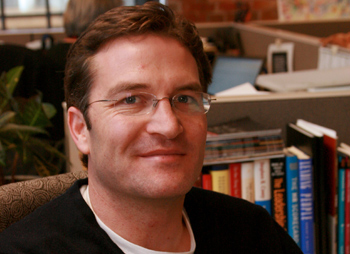Facing a challenging crossroads in my career, I whined to a friend, “I just don’t know what I want to be when I grow up.”
He paused -- one of those annoying pregnant pauses -- waiting to see whether I would voice a path forward on my own.
“OK,” he said. “How about if we talk about who you want to be while you are growing up?”
Mic drop. He nailed it.
He took what felt like an unanswerable question -- “What do I want to be when I grow up?” -- and reframed it into a question I could actually answer and make progress on -- “Who do I want to be while I am growing up?”
Perhaps it wasn’t an unanswerable question. I could have responded with childhood dreams of being a teacher, a veterinarian or an Olympic gymnast a la Mary Lou Retton. But it felt unanswerable. It felt complicated, complex, final and fraught with cascading implications. Any answer would cancel out other possibilities and set a path in motion that might be irreversible.
In reframing the question, my friend changed the focus in two significant ways. He changed the “what” to “who” and the “when” to “while.”
Asking “who” makes the conversation specific to who I am and anchors it in who I will always be. I am a child of God, a minister, wife, mother, sister, daughter, host, innovator, teacher and encourager. These will never change regardless of what I “do” for a living -- and I can make measurable plans to grow in each of these areas.
Asking “while” instead of “when” acknowledges that my question is ongoing. An answer doesn’t appear fully formed, making the question disappear. This is a process.
It is brave and creative work to reframe someone’s musings, especially when the questions are big. At first, I was annoyed, because my whining and complaining would have to give way to tactile, measurable work. Eventually, I became grateful, because my goal was progress and I didn’t know how to make it on my own.
This is the work of a holy friend, who challenges the sins we love, affirms the gifts we are afraid to claim, and helps us dream what we otherwise would not dream. In reframing a complicated question for me, my holy friend did all three of these.
In the face of what feels like an unending stream of complicated and unanswerable questions, we need to keep our holy friends close, and we need to be holy friends to one another.
The pandemic can make our world feel small, and the divisiveness of the political climate can create echo chambers in which we hear only one (our) side of arguments.
Yet the massive loss of life and livelihood can draw our vision and awareness to larger, systemic issues. These are issues so important we cannot keep ignoring them -- and they’re simultaneously so big we cannot imagine addressing them.
In this season, holy friends offer the power of a well-reframed question.
Beyond the individual, expressions of holy friendship can also be corporate. We need our institutions and churches to be holy friends to one another. Leaders need to help communities, organizations and congregations reframe the pressing questions that must be addressed.
“How do we keep our buildings and property safe?” is a question many of our institutions -- sacred and secular -- are asking in the face of protests and demonstrations that sometimes end in destruction of property or loss of life.
It is a critical question for those who trust their campuses to be safe places of welcome for all who enter. The answer, more often than not, is security systems or fences, armed guards or locked doors. Is this really the best we can expect from places that exist to serve their communities and be good neighbors?
A corporate expression of holy friendship might look like a community development organization coming alongside an institution in need of security and helping its leaders ask questions.
What exactly are we protecting? To whom does the property belong? From whom are we protecting it? What does security look like that respects its community?
Last March, COVID-19 prompted us to pause in-person gatherings of the body of Christ for worship, fellowship and service. As pastors and church leaders scrambled to provide online options, wise holy friends among us reframed our questions about platforms, bandwidth and how to count “viewers” into questions about identity and purpose.
How can we grow closer to God in a pandemic? Whom does our church really serve -- online and in our physical space? Who are our neighbors, and how can we be better neighbors to them?
Practitioners of asset-based community development have been helping communities and organizations do this for years. Rather than assessing a neighborhood for its needs, it reframes questions in a more positive, proactive way.
What are the gifts in this community? Where is the abundance? Where is hope?
These are questions that any of us would be proud to answer about our neighbors. These are questions that affirm gifts and help us dream new dreams.
The questions a holy friend asks in a pandemic may not always be welcome. Whether an individual or an institution is asking, when someone challenges our sins, it stings. And there is usually a reason we haven’t let certain gifts be affirmed or haven’t dreamed big dreams; the cost of failure can feel too great to risk.
Yet holy friends ask these kinds of questions because they see us not for who we are today but for who we can be at our best. They see us as God sees us, as flourishing individuals and thriving institutions offering our unique contributions to beloved community.
What questions are whining or nagging in your or your institution’s background? Who are your holy friends who can reframe them to help you see your context anew and make progress toward your vision and mission?




















